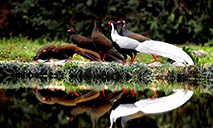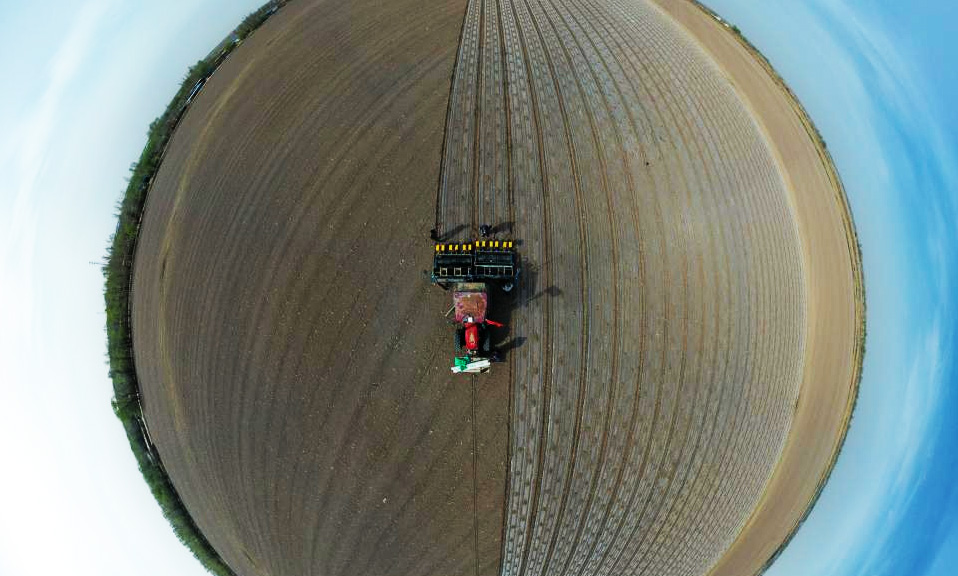Feature: Chinese artist paints classic novel characters to life
YINCHUAN, April 24 (Xinhua) -- Chai Peike, 83, has taken up an ambitious project to paint 480 characters of the "Dream of the Red Mansion," one of the four most famous classical Chinese literary works.
Chai hails from Guyuan City in northwest China's Ningxia Hui Autonomous Region and is proficient in Chinese brush painting. Over the years, he has developed a habit of turning the characters of novels he has read into images.
"When I read books, I should be able to visualize the characters as well as practically see their images. My aim while reading is to absorb the stories and transform them into paintings," Chai said.
He has recently donated a set of paintings depicting 108 characters from "Outlaws of the Marsh," a classic Chinese novel series, to an archive in his hometown.
A fan of this epic novel series, Chai has developed his own understanding of the ancient heroes after studying their characteristics for years.
"Every time I close my eyes after reading the book, the characters play out in my mind. This allows me to paint them according to my visualizations and sometimes even improvise them," he said.
"Wu Song, who kills a tiger with his bare hands, is my favorite hero because of his hatred toward evil and knighthood spirit," Chai added. "So I painted him as a perfect man."
According to the novel, Wu Song had one arm chopped off by a bandit and was handicapped in the end, but Chai kept his two arms intact. Wu Song's facial expression was also based on Chai's own interpretation.
Chai's hometown Guyuan is the cradle of a local literary culture called "Xihaigu Literature." Xihaigu, a region that was long deemed "uninhabitable," bid farewell to poverty in recent years.
"Guyuan is not only the center of Xihaigu area but also the source of its literature," said Wang Lun, dean of the Guyuan Archives.
"The fighting spirit of the heroes in 'Outlaws of the Marsh' has inspired us to combat poverty and improve our lives, which accords with the local culture," Wang said.
Photos
 World Book Day: Let's read together
World Book Day: Let's read together Rare silver pheasants flock together in greater numbers to forage at Yishan nature reserve in east China's Jiangxi
Rare silver pheasants flock together in greater numbers to forage at Yishan nature reserve in east China's Jiangxi Young artist takes up brush to create lifelike paintings expressing mankind and nature’s harmonious co-existence
Young artist takes up brush to create lifelike paintings expressing mankind and nature’s harmonious co-existence Cutton farming in full swing in China's Xinjiang
Cutton farming in full swing in China's Xinjiang
Related Stories
Copyright © 2022 People's Daily Online. All Rights Reserved.






